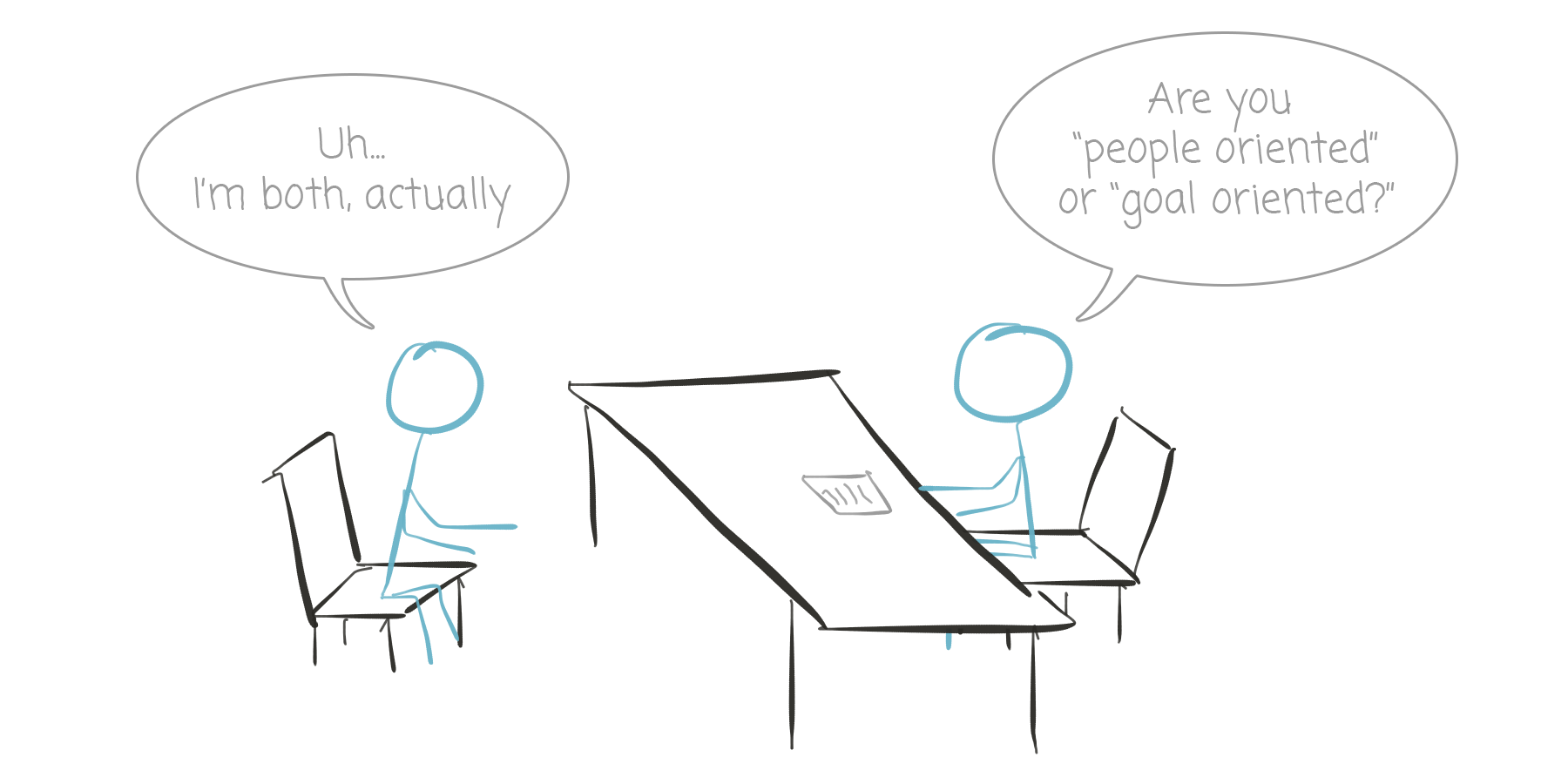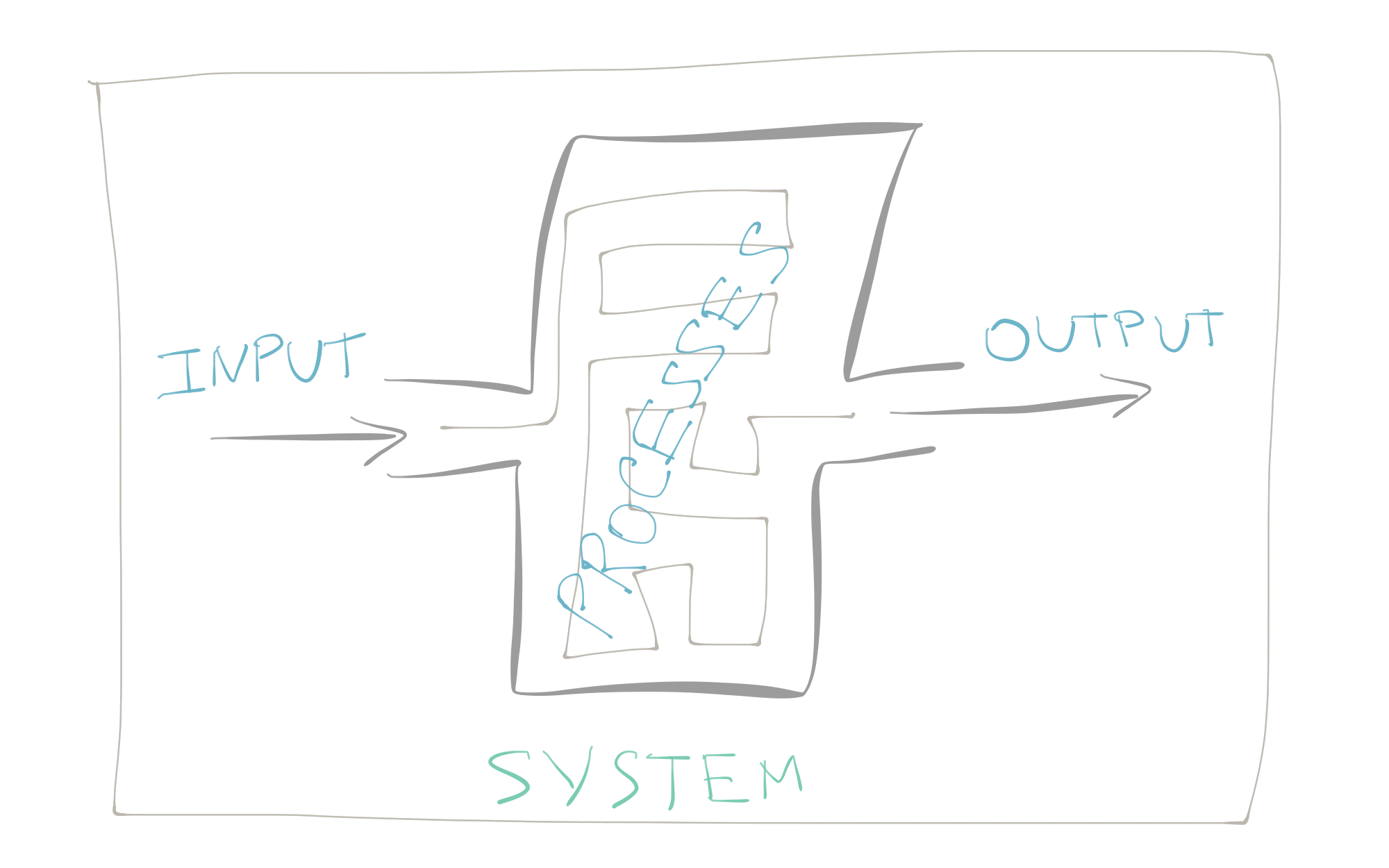
Are You A “People-oriented” Or A “Goal-oriented” Person?
How many times have you heard this question? And how many times did you try to cover both parts when attempting to answer it? Or at least try to sound not too “not-at-all-people-oriented” person or not too “all-I-care-about-is-results” person?
And sometimes you do this not because you want to make a better impression, but because you kind of get along with people really good and you are a goal-oriented person.
There Are Two Kinds Of People
This question pretends to be one of those that categorize people into two mutually exclusive groups, as per the popular saying:
There are two types of people in the world; those who constantly divide people into two types, and those who do not.
The reality, though, is that it fails to do so. I was wondering when hearing this question for the first time: “Why can’t someone be both?” I’m sure you know someone who is both (or even you are).
Besides, this question attempts to label a huge part of the population as being incapable of doing something that you have to deal with regularly! Don’t get me wrong. I understand that there are people that do not feel comfortable with communicating with other people and I’m not saying that checking for “people-oriented”-ness is bad. It is just not suitable to be done using this question. I have interviewed people, for both technical and non-technical jobs, and I can tell you can find out how “people-oriented” a person is using other questions/techniques.
We live in a world today where collaboration skills are required at almost any job. Teamwork has never been more important than it is now. The world is moving at an ever-increasing speed, the competition gets rougher, clients become more spoiled and working as a single mechanism, where the sum of the whole is greater than the sum of its components is one of the keys to success. You must know how to express your point of view and how to do it efficiently. There are jobs where collaboration doesn’t play an important role, but the irony is that for those jobs nobody asks such questions.
If This Categorization Doesn’t Work, Then What Does?
A better way to categorize people can be derived from analyzing the general principle of how a system works (after all, a company, start-up, organization, all are systems).

You have input, internal processes, and output.
The input you cannot change in most cases. It is the “fuel” that keeps the system functioning. The output is the goals of the system. The output is the what needs to be done.
And we are left with the processes, the how it needs to be done. Processes describe the way the system achieves the results. They can be internal documents that define the working process, or they can be standards, or practices, or anything that defines how something should be done.
Examples Of Processes
In sales, a process could be represented by the steps a sale should follow. For instance:
- greet the customer
- find out his needs
- present the product
- overcome the objections
- close the sale
- say goodbye and invite to another visit
In software engineering, a process could be represented by the steps a product should go through. For instance:
- work on user stories from the sprint backlog
- run the test suite before starting to work on your task
- write the code
- … (and so on)
The Proper Question
Therefore, a better question would sound like:
Are you a “process-oriented” or a “goal-oriented” person?
This question does a better job of categorizing people into one of two camps.
If you are “process-oriented,” this means it is very important for you to do things right rather than to do anything just for the sake of getting to the result faster. For these people, the journey is an important component of their work and they usually do not use shortcuts, they follow the process even if nobody is watching. Moreover, when you practice the process regularly, you become better at it, which in turn will make you achieve the results faster.
On the other hand, “goal-oriented” people can disregard some processes if that will let them achieve the result. For these people, the destination is what matters and they may not care what path will bring them to it.
Which one is better? As in most cases, it depends. Different jobs, companies require different people. Know what people you need and filter them.
Note that both groups do not state anything about how social you are, as in both cases you will have to collaborate with other people.
Call To Action
Next time when you are asked this question, tell the interviewer that a more accurate one would be “process vs goals” and explain your reasoning.
I have done this myself and interviewers showed keen interest in this approach, as they never have thought about it themselves.
In case you are an interviewer, give this question a try as it will uncover the interviewee from yet another perspective.
If you liked this article, consider subscribing below and following me on twitter (@iuliangulea).